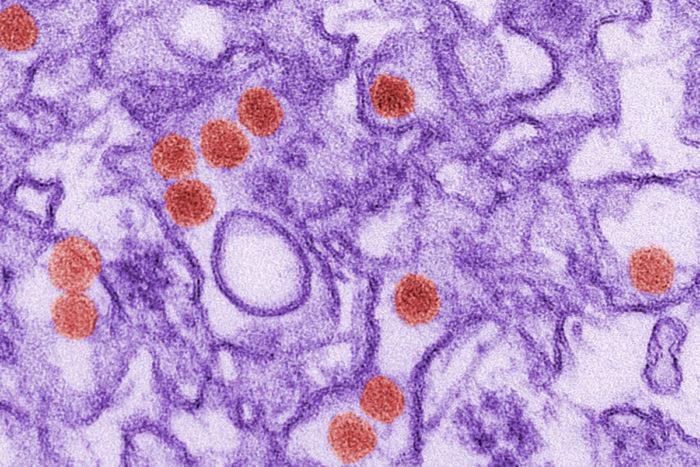The first of five early stage clinical trials to test the safety and ability of an investigational Zika vaccine candidate called the Zika Purified Inactivated Virus (ZPIV) vaccine to generate an immune system response has begun at the Walter Reed Army Institute of Research (WRAIR) Clinical Trial Center in Silver Spring, Maryland. Scientists with WRAIR, part of the U.S. Department of Defense (DoD), developed the vaccine. The National Institute of Allergy and Infectious Diseases (NIAID), part of the National Institutes of Health (NIH), is co-funding the Phase 1 clinical trial with WRAIR, serving as the regulatory sponsor and providing other support.

The experimental ZPIV vaccine is based on the same technology WRAIR used in 2009 to successfully develop a vaccine for another flavivirus called Japanese encephalitis. The ZPIV vaccine contains whole Zika virus particles that have been inactivated, meaning that the virus cannot replicate and cause disease in humans. However, the protein shell of the inactivated virus remains intact so it can be recognized by the immune system and evoke an immune response. NIAID partially supported the preclinical development of the ZPIV vaccine candidate, including safety testing and non-human primate studies that found that the vaccine induced antibodies that neutralized the virus and protected the animals from disease when they were challenged with Zika virus. WRAIR, NIAID and the Biomedical Advanced Research and Development Authority (BARDA) part of the HHS Office of the Assistant Secretary for Preparedness and Response (ASPR) have established a joint Research Collaboration Agreement to support the development of this vaccine.
“We urgently need a safe and effective vaccine to protect people from Zika virus infection as the virus continues to spread and cause serious public health consequences, particularly for pregnant women and their babies,” said NIAID Director Anthony S. Fauci, M.D. “We are pleased to be part of the collaborative effort to advance this promising candidate vaccine into clinical trials.”
Led by WRAIR principal investigator Maj. Leyi Lin, M.D., the new study aims to enroll 75 people ages 18 to 49 years with no prior flavivirus infection. Flaviviruses include Zika virus, yellow fever virus, dengue virus, Japanese encephalitis virus and West Nile virus. Participants will be randomly divided into three groups: the first group (25 participants) will receive two intramuscular injections of the ZPIV test vaccine or a placebo (saline) 28 days apart; the other two groups (25 participants each) will receive a two-dose regimen of a Japanese encephalitis virus vaccine or one dose of a yellow fever vaccine before beginning the two-dose ZPIV vaccine regimen. Investigators chose to administer additional flavivirus vaccines because U.S. service members are often vaccinated against these diseases before deploying to Zika-endemic areas.


What serious health consequences? The health of Big Pharma as people get wise to their lies? In that case, yes, they need a new vaccine to keep those profit margins safe…..